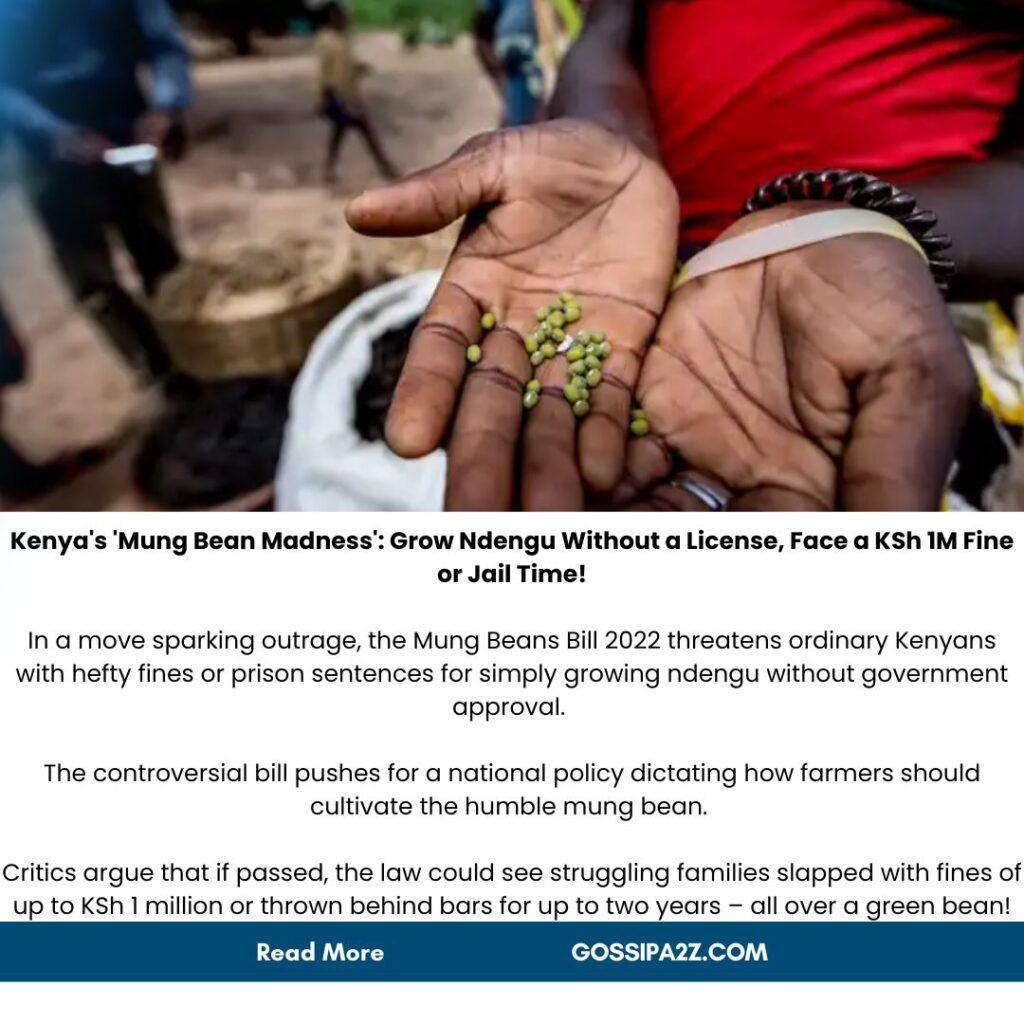Mung Beans Bill 2022: Kenyans Face KSh 1m Fine, Imprisonment for Growing Ndengu without Licence
Cultivating mung beans (ndengu) without a license could soon lead to fines up to Sh1 million or a two-year jail term, or both if a proposed Bill in Parliament is passed into law.
The Mung Beans Bill, 2022, currently being considered in the Senate, introduces strict licensing requirements for marketers, processors, and large-scale traders of mung beans.
It stipulates that no one is allowed to market, process, or engage in large-scale trading of mung beans or related products without a valid license from the relevant county government. The licenses will be renewed on an annual basis.
ALSO READ:
- Raila Ally Breaks Silence After Ruto-Uhuru Meeting
- Gachagua Close Ally Karungo Wa Thang’wa Accepts Ruto’s CBS Award
- Gov’t to Release Ksh.32 Billion to Counties Next Week – DP Kindiki
- High Court Strikes Down Ruto-Raila 2023 IEBC Amendment Bill
- Kenya Water Towers Agency Dissolved: Government Moves to Streamline State Corporations
“Anyone who violates these provisions commits an offense and faces a fine not exceeding Sh1 million or imprisonment for a term not exceeding two years, or both,” the Bill specifies.
For proper enforcement, county ministers will be tasked with setting up county licensing committees.
The Bill further allows county governments to pass legislation detailing the criteria for issuing licenses and the necessary information applicants must submit.
“A county licensing committee may revoke a license issued under this Act if the license holder violates any provisions of this Act or relevant national or county legislation,” states the Bill.
The Bill, spearheaded by Kitui Senator Enoch Wambua, was initially read on February 15, 2023. After undergoing legislative processes and amendments, it was passed in February 2024 and forwarded to the National Assembly for concurrence.

Maintain Register
County ministers will be responsible for maintaining a register of all licenses issued and are required to provide the Agriculture and Food Authority (AFA) with monthly updates on growers registered and licenses issued, canceled, or renewed by the fifth day of every month.
Additionally, the Bill mandates that all growers register with the relevant county minister, who will maintain a detailed register.
This registration will include details such as the grower’s name, location, land size and parcel number, and the variety cultivated.
However, each county is permitted to enact its legislation outlining the criteria for grower registration within its jurisdiction.
Senator Wambua emphasized that the law is crucial to eliminating exploitative brokers and ensuring Kitui farmers, as well as those in other regions cultivating mung beans, benefit fully.
“The Bill’s passage will establish a framework to regulate and promote Kenya’s mung beans industry, boosting its competitiveness on an international level, leading to higher productivity and income for farmers,” he stated.
Furthermore, the Bill aims to support mung bean farmers in every county by facilitating the production and marketing of their produce while promoting the beans as a key food security item in both national and county feeding programs and policies.
Mung Beans Bill 2022: Kenyans Face KSh 1m Fine, Imprisonment for Growing Ndengu without Licence
